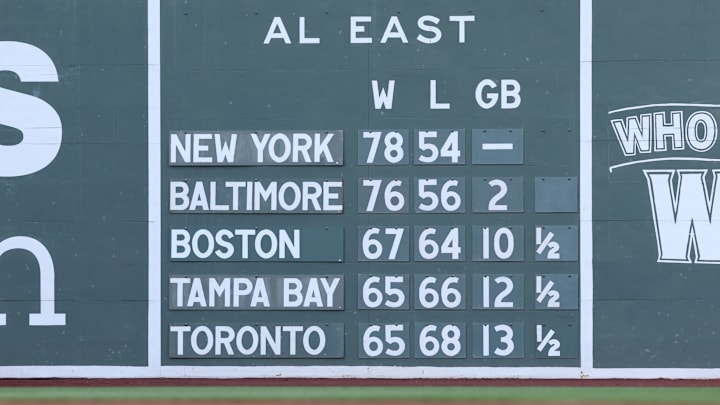In a season where the big league roster is dead last in the AL East, Toronto Blue Jays fans might be looking at rising prospects in the farm system to restore hope and renew their faith in the future of the team. Sadly, that future is not very bright based on both third party rankings and organizational standings.
With the conclusion of the minor league regular season on Sunday, we know which organization finished with the best record across the minor leagues. Spoiler alert: it wasn’t Toronto. In fact, only two teams across the Blue Jays’ system had winning records this year: the High-A Vancouver Canadians at 68-61, and the Single-A Dunedin Blue Jays at 69-61.
Including Toronto, the organization was a combined 372-437 through games Sunday across six levels from the rookie Dominican Summer League and Florida Complex League through to MLB, for a .460 winning percentage. That drops to 299-354 (.458) excluding the big league club, with a -240 run differential across those six minor league teams.
That ranks the Blue Jays at No. 28 out of the 30 MLB franchises. The only teams with worse organizational records by winning percentage of their minor league affiliates? The San Diego Padres at 315-403 (.439) and the Atlanta Braves at 283-371 (.434).
Meanwhile, the Detroit Tigers minor league affiliates went 396-318 (.555) to lead the organizational standings, with a +442 run differential (RD). Cleveland Guardians affiliates were 392-317 (.553), with a +331 RD. The Brewers minor league teams went 389-320 (.549) with a +253 RD, and the Boston Red Sox affiliates went 394-326 (.547) with a +252 RD to round out the top four.
That overlaps with the farm system rankings as well, with MLB Pipeline ranking Detroit, Cleveland and Boston all as top seven systems, with Milwaukee at No. 17. FanGraphs ranks them all top ten apart from Milwaukee at No. 18.
Another way to measure minor league success as a predictor of future MLB success? Minor league championships. On that front, Toronto has a woeful record as well, with only four MiLB full-season titles this century.
Current Blue Jays manager John Schneider managed two of those teams, including the the first Florida State League (FSL) championship in the 33-year history of the Dunedin Blue Jays in 2017, and the New Hampshire Fisher Cats when they won the Eastern League Championship in 2018. He also managed the short-season Vancouver Canadians to a league title in 2011.
Most MiLB full-season titles in the 21st century. The Rays could add another one this week with the Biscuits playing for the Southern League crown. pic.twitter.com/ZZ0cFxdad8
— JJ Cooper (@jjcoop36) September 19, 2024
Meanwhile, the Tampa Bay Rays have 19 full-season minor league titles over the same stretch, and could make it 20 if the Double-A Montgomery Biscuits can come back in the Southern League Championship series this week against the Birmingham Barons, where they trail 1-0.
Not only are the Yankees about to clinch a third AL East title since 2019, but two of their minor league affiliates advanced to their respective Championship Series, with the High-A Hudson Valley Renegades falling 2-1 to the Bowling Green Hot Rods, a Tampa Bay affiliate, in the South Atlantic League Championship Series; and, the Double-A Somerset Patriots are down 1-0 to the Erie SeaWolves, a Tigers affiliate, in the Eastern League Championship Series.
The Blue Jays’ Eastern League affiliate, the New Hampshire Fisher Cats, finished last in the Northeast division at 52-84 (.382) with a -107 run differential.
The Triple-A International League, where the Toronto affiliated Buffalo Bisons finished in last place in the East division at 68-80 with a -46 run differential, will see its best-of-three League Championship Series start Tuesday with the Cleveland affiliated Columbus Clippers playing against the Kansas City affiliated Omaha Storm Chasers.
So what does this all mean? If we assume that Toronto’s American League peers are actually developing waves of MLB-ready talent, it suggests that the Blue Jays will have a much harder time extending their competitive window absent winning trades and continuously making elite - and expensive - free agent signings.
Teams like Detroit, Cleveland, Boston, Tampa Bay and New York can also more easily deal from their top prospect talent pool to improve their 26-man big league roster. Many of these players have been performing well in postseason baseball as well, which potentially improves their prospect stock.
